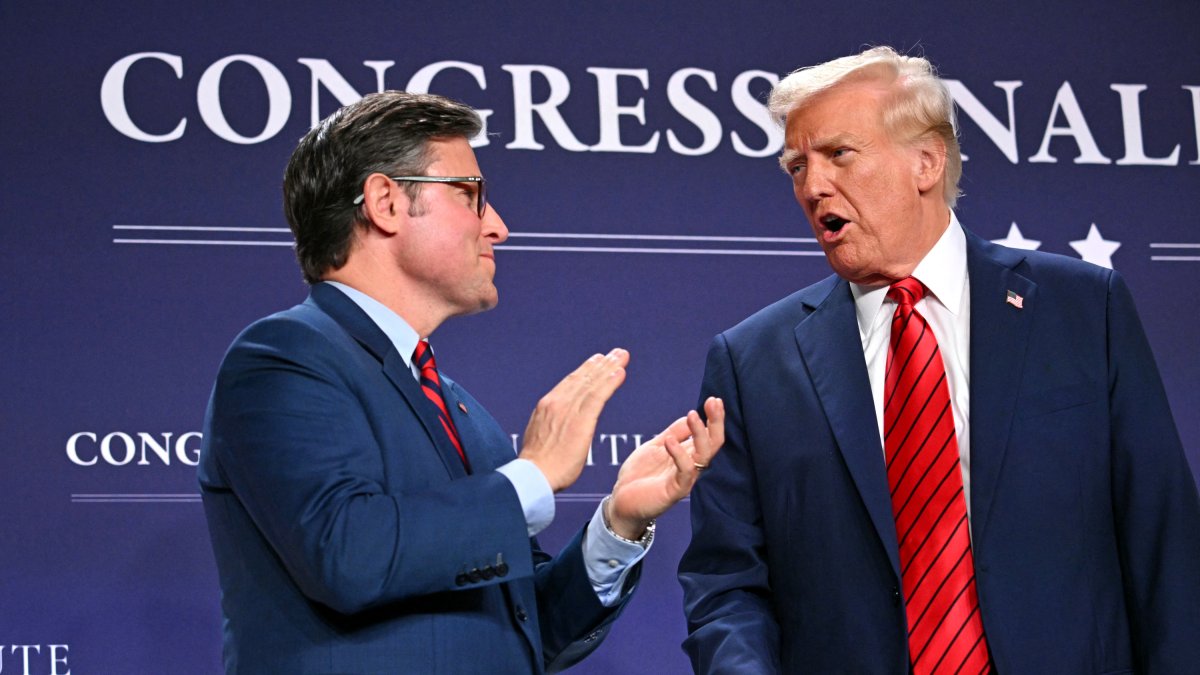Trump laid out his tax priorities before congressional Republicans: 'Biggest tax cut in history for the middle class'
Aiming to detail his legislative plan, the president met behind closed doors with Mike Johnson, Steve Scalise and Tom Emmer.

Republicans will hold majorities in both chambers until at least January 2027/ Mandel Ngan
Donald Trump made his fiscal priorities clear before House Republican leaders. Aiming to reemphasize the most urgent items on his legislative agenda heading into the 119th Congress, the president met behind closed doors with Mike Johnson, Steve Scalise and Tom Emmer. In short, Trump's intention is to pass "the biggest tax cut in history for middle-class working Americans."
Karoline Leavitt, White House press secretary, punted to reporters on the contents of Trump's second-term tax plan.
- No tax on tips
- No tax on seniors’ Social Security
- No tax on overtime pay
- Renewing the Trump tax cuts (Tax Cuts and Jobs Act of 2017)
- Adjusting the SALT cap
- Eliminating special tax breaks for billionaire sports team owners
- Closing the carried interest loophole
- Tax cuts for Made in America projects
"This will be the largest tax cut in history for middle class working Americans," Levitt concluded after reading the list.


Politics
Trump signs executive order to ban transgender athletes from competing in women's sports
Joaquín Núñez
One huge bill or two separate bills: The Republican congressional conundrum
Despite the fact that Trump has already defined his tax reform, the strategy for passing it through Congress is unknown.
At this point, legislators are divided into two groups: those who prefer to combine all the president's priorities in one big bill and those who are betting on two separate bills. The second group believes that the issues on which there is a general consensus in the GOP, such as the southern border, energy and military funding, should be grouped together first, leaving the tax issue for a second bill to be introduced in August or September.
Led by Mike Johnson, House Republicans favor the big bill, while Republicans in the Senate favor splitting that text into two. They both agree on moving forward before March, given that, should they delay any longer, Democrats will be able to use the southern border funds as a bargaining chip to negotiate a government shutdown.

























